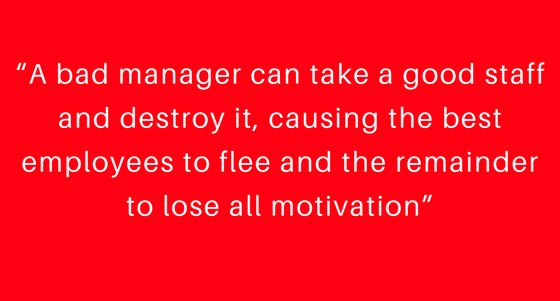Article Update: “It does not make sense to hire smart people, and then have them follow stupid rules”

Artricle Update: Risks Are Rising While Low Risks Are Discounted
August 18, 2017
Article Update: German sex tech innovator einhorn raises €0.0 million led by nobody and keeps its equity & control
August 18, 2017The “Good”, the “Bad” and the “Ugly” Managers when dealing with mistakes
First, to make mistakes is Human. We all do.
Second, learning from mistakes can lead to higher productivity as a team and for the professional growth of the individual. However, this will only happen if error/mistake is managed and dealt properly.
In my experience, mistakes or errors can be healthy as they can be good indicators of hidden problems, and therefore it leads to applying a solution and that results in higher productivity.
I have suffered the bad and the ugly, and at a younger age, dealt with it very badly, resulting in a lot of emotional pain, and a decrease in my self-esteem.
However, with years, as I gained confidence I acted in a way that did not harm my Self Esteem. How? Being assertive, but usually in my case, leaving the company.
I have also been lucky to enjoy the good. All these experiences at the end helped me grow as a professional and as a person.
The “Bad”
- Cynical
- Change averse
- Need for security
- We could call him/her a “Civil Servant”
The ones that do not make mistakes are the ones who do nothing or who mechanically follow strictly indications. They abide by the mantra “this is how this company does things”
Results on the manager and his team
- No mistakes lead to no experience, and no experience leads to no wisdom.
- In a world of uncertainty where flexibility, adaptability and rapid change is the norm, this manager can be very bad for a company’s future.
- High numbers of employee’s leave the company
- The productivity of the division is low.
The “Ugly”
- Has an exaggerated sense of self-importance.
- Has a sense of entitlement.
- Is interpersonally exploitative and manipulates for his gain.
- Lacks empathy: is unwilling, sometimes unable to recognize or identify with the feelings and needs of others.
- Can be arrogant, and have rude and abusive behaviors or attitudes.
- Aggressive
Punishes the person who makes the mistake.
The way punishment is delivered increases the “ugliness of the manager”. Examples could be the following
- To fix the mistake the person who made the error is humiliated, like in a team meeting.
- Putting himself/herself as an example when correcting mistakes is really just being pretentious
Results on the manager and his team
- The person who made the mistake will never take new initiatives
- The other team members will also be “motivated” not to take initiatives
- Productivity of that division suffers
- Ultimately subordinates will leave at the first opportunity they have
- Legal implications can come into play.
Finally, the manager uses delegation as an excuse not to take accountability. How? he delegates responsibility, which is obvious you cannot delegate your responsibilities to your team members. Because you are compensated for having those responsibilities.
Managing error is a form of delegation. A manager who does not know how to delegate does not know how to manage.
The “Good”
As opposed to the ugly which is aggressive the good manager is usually:
- Assertive
- Secure of himself
- High Emotional intelligence
- Empathetic
- Does not see the growth of his subordinates as a threat to his job, on the contrary, as productivity increases, he is well regarded by his superiors.
- Usually, this manager promotes within his team
- Wishes his team to bring out their full potential and as sometimes his team may not even know their true potential he uses managing by error as a way to have his team members grow.
Caveats to this managers approach to errors or mistakes:
- Promotes error – singular!!! not repeated errors
- Takes full accountability for the mistake
- Does not micro-manage but when a mistake is done, he uses empathy and dialogue with the person who made the error, to analyze lessons learned, what went wrong and what to change going forward.

